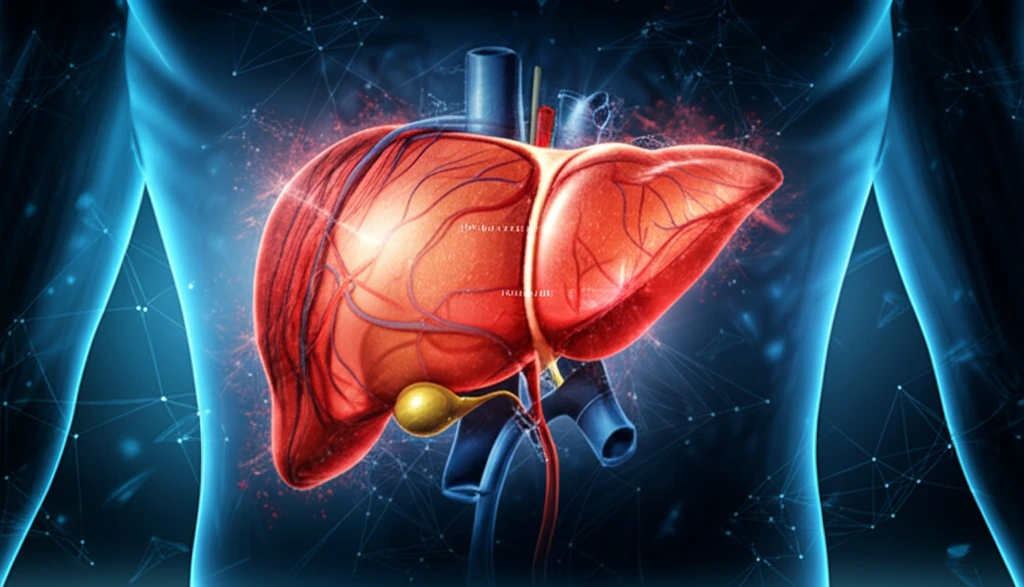
The Liver's Surprising Role in Insulin Resistance: How Diet Impacts Your Health
"Discover how hepatic insulin clearance regulates systemic insulin concentrations and why carbohydrate intake could be the key to managing insulin resistance."
Hyperinsulinemia, a condition characterized by abnormally high levels of insulin in the blood, is a well-known marker of insulin resistance, especially in individuals with obesity. The interplay between insulin secretion, insulin resistance, and insulin clearance—the process by which insulin is removed from the bloodstream—has been a subject of extensive debate among researchers and healthcare professionals alike.
Emerging evidence suggests that hepatic insulin clearance, which refers to the liver's ability to remove insulin, plays a far more critical and immediate role in regulating systemic insulin concentrations than previously understood. This regulation occurs rapidly, often within days, in response to changes in dietary energy and, more specifically, carbohydrate intake. The implications of these findings could revolutionize our approach to managing and preventing insulin resistance.
This article will delve into the intricate relationship between hepatic insulin clearance, dietary carbohydrate, and overall energy availability. We'll explore the latest research that highlights how these factors interact to influence insulin sensitivity and offer practical insights to help you make informed choices for better metabolic health.
The Liver-Insulin Connection: What the Science Says

Insulin, a hormone produced by the pancreas, is essential for regulating blood sugar levels. It allows glucose, derived from the food we eat, to enter cells where it can be used for energy. Insulin resistance occurs when cells become less responsive to insulin, requiring the pancreas to produce more insulin to achieve the same effect. This can eventually lead to elevated blood sugar levels and a host of metabolic problems, including type 2 diabetes.
- Insulin Resistance: Cells become less responsive to insulin.
- Hyperinsulinemia: Abnormally high insulin levels in the blood.
- Hepatic Insulin Clearance: The liver's process of removing insulin from the bloodstream.
- Dietary Impact: Carbohydrate and energy intake significantly influence hepatic insulin clearance.
Take Control of Your Insulin Sensitivity: Practical Tips
Understanding the critical role of hepatic insulin clearance opens new avenues for managing insulin resistance through dietary modifications. While more research is needed to fully elucidate the molecular mechanisms involved, the current evidence strongly suggests that carbohydrate intake and overall energy balance are key factors influencing liver function and insulin sensitivity. By making informed choices about your diet, you can support your liver's ability to efficiently clear insulin, promoting better metabolic health and reducing your risk of insulin resistance and related conditions.
